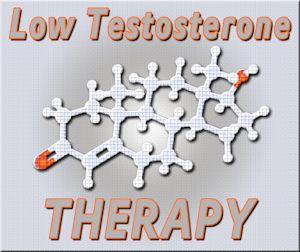Introduction to Diet and Mental Health
The intricate relationship between diet and mental health is increasingly recognized within the scientific community, particularly as it pertains to American males. A balanced diet not only fuels the body but also plays a crucial role in maintaining mental well-being. This article explores how dietary choices can impact mental health outcomes in men, offering insights into how nutrition can be leveraged to enhance psychological resilience and overall health.
The Role of Nutrients in Mental Health
Essential nutrients such as omega-3 fatty acids, vitamins, and minerals have been shown to influence brain function and mood regulation. Omega-3s, found in fish like salmon and in flaxseeds, are vital for maintaining the fluidity of cell membranes in the brain, which is crucial for neurotransmitter activity. Studies have indicated that men with higher levels of omega-3s have a reduced risk of depression and anxiety.
Similarly, B vitamins, particularly B12 and folate, are essential for the production of serotonin, a neurotransmitter that contributes to feelings of well-being and happiness. A deficiency in these vitamins can lead to mood disturbances. Foods rich in B vitamins include leafy greens, legumes, and animal products like meat and dairy, which are commonly consumed in American diets.
Dietary Patterns and Mental Health Outcomes
Research has consistently shown that dietary patterns can significantly influence mental health. The Western diet, characterized by high intakes of red meat, processed foods, and sugars, has been linked to increased risks of depression and anxiety in men. Conversely, diets rich in fruits, vegetables, whole grains, and lean proteins—such as the Mediterranean diet—have been associated with lower rates of mental health disorders.
A study published in the *American Journal of Clinical Nutrition* found that adherence to a Mediterranean diet was inversely associated with the incidence of depression in men. This suggests that shifting dietary habits towards more wholesome, nutrient-dense foods could be a beneficial strategy for improving mental health.
The Impact of Gut Health on Mental Well-being
Emerging research has highlighted the gut-brain axis as a critical pathway through which diet affects mental health. The gut microbiome, influenced by dietary intake, communicates with the brain via the vagus nerve, affecting mood and cognitive function. Probiotic-rich foods like yogurt and fermented vegetables, as well as prebiotic foods such as garlic and onions, can enhance gut health and, by extension, mental well-being.
Practical Dietary Recommendations for American Men
To optimize mental health through diet, American men should consider the following recommendations:
1. **Increase Intake of Omega-3 Fatty Acids:** Incorporate more fish, such as salmon or mackerel, into your diet. For those who do not consume fish, consider omega-3 supplements after consulting with a healthcare provider.
2. **Focus on Whole Foods:** Prioritize whole grains, fruits, and vegetables over processed foods. These foods provide essential nutrients and fiber that support both physical and mental health.
3. **Limit Sugar and Processed Foods:** Reducing the intake of sugary and processed foods can help stabilize mood and reduce the risk of mental health issues.
4. **Support Gut Health:** Include probiotic and prebiotic foods in your diet to foster a healthy gut microbiome, which is linked to improved mental health.
Conclusion: The Path Forward
The link between diet and mental health in American men is clear and compelling. By making informed dietary choices, men can not only improve their physical health but also enhance their mental well-being. As research continues to evolve, it is essential for men to stay informed and proactive about their dietary habits, recognizing the profound impact that nutrition can have on their overall quality of life.
Contact Us Today For A Free Consultation

- Erectile Dysfunction in American Men: Causes, Diagnosis, and Comprehensive Treatment Options [Last Updated On: March 6th, 2025] [Originally Added On: March 6th, 2025]
- Supplements for Men's Health: Fitness, Heart, Mental, and Prostate Support [Last Updated On: March 17th, 2025] [Originally Added On: March 17th, 2025]
- Sleep Apnea in American Men: Risks, Symptoms, and Effective Management Strategies [Last Updated On: March 18th, 2025] [Originally Added On: March 18th, 2025]
- Exploring Key Fitness Trends Enhancing American Men's Health and Well-being [Last Updated On: March 18th, 2025] [Originally Added On: March 18th, 2025]
- Osteoporosis in Men: Prevention Through Nutrition, Exercise, and Lifestyle Management [Last Updated On: March 19th, 2025] [Originally Added On: March 19th, 2025]
- Gut Health's Impact on Men's Wellness: Digestion, Mental Health, and Heart Disease [Last Updated On: March 19th, 2025] [Originally Added On: March 19th, 2025]
- Stress and Heart Health: A Comprehensive Guide for American Men [Last Updated On: March 20th, 2025] [Originally Added On: March 20th, 2025]
- Breaking Mental Health Stigma: Strategies for American Men to Prioritize Well-being [Last Updated On: March 21st, 2025] [Originally Added On: March 21st, 2025]
- Hydration's Critical Role in Men's Health: Performance, Kidney, and Cognitive Benefits [Last Updated On: March 21st, 2025] [Originally Added On: March 21st, 2025]
- Male Infertility: Causes, Diagnosis, Treatments, and Lifestyle Solutions for American Men [Last Updated On: March 21st, 2025] [Originally Added On: March 21st, 2025]
- Meditation: A Key to Enhancing Men's Mental Health and Well-being in the U.S. [Last Updated On: March 22nd, 2025] [Originally Added On: March 22nd, 2025]
- Alcohol Consumption and Liver Health: Impacts on American Males [Last Updated On: March 22nd, 2025] [Originally Added On: March 22nd, 2025]
- Effective Strategies for American Men to Quit Smoking and Improve Health [Last Updated On: March 22nd, 2025] [Originally Added On: March 22nd, 2025]
- High Cholesterol in American Men: Risks, Management, and Heart Health Strategies [Last Updated On: March 23rd, 2025] [Originally Added On: March 23rd, 2025]
- Exercise Reduces Cancer Risk in American Men: Colon, Prostate, Lung [Last Updated On: March 23rd, 2025] [Originally Added On: March 23rd, 2025]
- Exercise and Diabetes Management: A Vital Guide for American Men's Health [Last Updated On: March 23rd, 2025] [Originally Added On: March 23rd, 2025]
- Mental Health Days: Essential for American Men's Well-being and Balance [Last Updated On: March 24th, 2025] [Originally Added On: March 24th, 2025]
- Dietary Fiber: Essential for Men's Digestive, Weight, and Prostate Health [Last Updated On: March 24th, 2025] [Originally Added On: March 24th, 2025]
- Sleep's Crucial Role in Weight Management for American Men [Last Updated On: March 24th, 2025] [Originally Added On: March 24th, 2025]
- Hemorrhoids in American Men: Causes, Symptoms, Treatment, and Prevention Strategies [Last Updated On: March 24th, 2025] [Originally Added On: March 24th, 2025]
- Work-Life Balance: Its Profound Impact on American Men's Health and Well-being [Last Updated On: March 24th, 2025] [Originally Added On: March 24th, 2025]
- Promoting Men's Mental Health: The Vital Role of Regular Screenings [Last Updated On: March 24th, 2025] [Originally Added On: March 24th, 2025]
- Managing Allergies in Men: Strategies, Symptoms, and Professional Guidance [Last Updated On: March 25th, 2025] [Originally Added On: March 25th, 2025]
- Proactive Health Measures for American Men: Screenings, Lifestyle, and Mental Wellness [Last Updated On: March 25th, 2025] [Originally Added On: March 25th, 2025]
- Cycling Benefits for American Men: Health, Fitness, and Community Engagement [Last Updated On: March 25th, 2025] [Originally Added On: March 25th, 2025]
- Swimming: Enhancing Men's Health and Well-being in America [Last Updated On: March 25th, 2025] [Originally Added On: March 25th, 2025]
- Gout in American Men: Understanding, Managing, and Preventing Attacks [Last Updated On: March 25th, 2025] [Originally Added On: March 25th, 2025]
- Stroke Risks in American Men: Prevention, Management, and Lifestyle Strategies [Last Updated On: March 25th, 2025] [Originally Added On: March 25th, 2025]
- Plant-Based Diets: Health Benefits for American Men's Heart, Weight, and Cancer Risk [Last Updated On: March 25th, 2025] [Originally Added On: March 25th, 2025]
- Annual Physicals: Vital for Men's Health Maintenance and Disease Prevention [Last Updated On: March 25th, 2025] [Originally Added On: March 25th, 2025]
- Diet and Prostate Health: Key Foods to Embrace and Avoid [Last Updated On: March 25th, 2025] [Originally Added On: March 25th, 2025]
- Depression in Men: Recognizing Signs and Exploring Tailored Treatment Options [Last Updated On: March 26th, 2025] [Originally Added On: March 26th, 2025]
- Strength Training: Essential for American Men's Health and Vitality [Last Updated On: March 26th, 2025] [Originally Added On: March 26th, 2025]
- Seasonal Affective Disorder in American Men: Challenges, Impacts, and Treatment Options [Last Updated On: March 26th, 2025] [Originally Added On: March 26th, 2025]
- Dental Health's Crucial Role in Men's Overall Wellness and Disease Prevention [Last Updated On: March 26th, 2025] [Originally Added On: March 26th, 2025]
- Asthma in American Men: Symptoms, Management, and Unique Challenges [Last Updated On: March 26th, 2025] [Originally Added On: March 26th, 2025]
- Tai Chi: Enhancing Health and Well-being for American Men [Last Updated On: March 26th, 2025] [Originally Added On: March 26th, 2025]
- Stress and Digestive Health in American Men: Understanding and Managing the Gut-Brain Axis [Last Updated On: March 27th, 2025] [Originally Added On: March 27th, 2025]
- Addressing Men's Mental Health Challenges in the American Workplace [Last Updated On: March 27th, 2025] [Originally Added On: March 27th, 2025]
- Managing Anxiety in American Men: Tools and Techniques for Better Mental Health [Last Updated On: March 27th, 2025] [Originally Added On: March 27th, 2025]
- Arthritis in Men: Understanding, Preventing, and Managing Joint Health Effectively [Last Updated On: March 27th, 2025] [Originally Added On: March 27th, 2025]
- Varicose Veins in Men: Causes, Symptoms, and Effective Treatment Options [Last Updated On: March 27th, 2025] [Originally Added On: March 27th, 2025]
- Diet and Heart Disease: Key Insights for American Men's Health [Last Updated On: March 27th, 2025] [Originally Added On: March 27th, 2025]
- Kidney Stones in Men: Causes, Symptoms, Prevention, and Management Strategies [Last Updated On: March 27th, 2025] [Originally Added On: March 27th, 2025]
- Obesity and Cancer Risks in American Men: Understanding and Prevention Strategies [Last Updated On: March 27th, 2025] [Originally Added On: March 27th, 2025]
- Social Connections: Vital for American Men's Mental Health and Well-being [Last Updated On: March 27th, 2025] [Originally Added On: March 27th, 2025]
- Hiking: Enhancing Men's Health and Well-being in America [Last Updated On: March 28th, 2025] [Originally Added On: March 28th, 2025]
- Insomnia's Impact on Men's Health: Causes, Strategies, and Solutions [Last Updated On: March 28th, 2025] [Originally Added On: March 28th, 2025]
- Pilates: Enhancing Core Strength, Flexibility, and Mental Well-being for American Men [Last Updated On: March 28th, 2025] [Originally Added On: March 28th, 2025]
- Eye Exams: Vital for Men's Health and Vision in America [Last Updated On: March 28th, 2025] [Originally Added On: March 28th, 2025]
- Caffeine's Effects on American Men: Health Benefits and Risks Explored [Last Updated On: March 28th, 2025] [Originally Added On: March 28th, 2025]
- Antioxidants: Vital for American Men's Health and Disease Prevention [Last Updated On: March 29th, 2025] [Originally Added On: March 29th, 2025]
- Pollution's Impact on American Men's Health: Respiratory, Cardiovascular, and Reproductive Risks [Last Updated On: March 31st, 2025] [Originally Added On: March 31st, 2025]
- Understanding and Managing Migraines in Men: Symptoms, Triggers, and Effective Strategies [Last Updated On: April 2nd, 2025] [Originally Added On: April 2nd, 2025]
- Empowering American Men: The Vital Role of Mental Health Education [Last Updated On: April 3rd, 2025] [Originally Added On: April 3rd, 2025]
- Community Impact on Men's Health: Enhancing Wellbeing Through Social and Supportive Initiatives [Last Updated On: April 5th, 2025] [Originally Added On: April 5th, 2025]
- Rowing: A Comprehensive Fitness Solution for American Men's Health [Last Updated On: April 5th, 2025] [Originally Added On: April 5th, 2025]
- Alcohol and Mental Health: Impacts on American Men and Management Strategies [Last Updated On: April 6th, 2025] [Originally Added On: April 6th, 2025]
- Martial Arts: Enhancing Men's Health and Well-being Holistically [Last Updated On: April 8th, 2025] [Originally Added On: April 8th, 2025]
- Back Pain in American Men: Causes, Prevention, and Management Strategies [Last Updated On: April 8th, 2025] [Originally Added On: April 8th, 2025]
- Managing Panic Attacks: Strategies and Support for American Men's Health [Last Updated On: April 9th, 2025] [Originally Added On: April 9th, 2025]
- Skin Cancer in American Men: Risks, Prevention, and Early Detection Strategies [Last Updated On: April 10th, 2025] [Originally Added On: April 10th, 2025]
- Technology's Impact on Men's Health: Accessibility, Wearables, and Future Innovations [Last Updated On: April 10th, 2025] [Originally Added On: April 10th, 2025]
- Essential Vitamins for Men's Health: D, B12, C, E, K Benefits [Last Updated On: April 10th, 2025] [Originally Added On: April 10th, 2025]
- IBS in Men: Symptoms, Diagnosis, and Management Strategies for Improved Health [Last Updated On: April 11th, 2025] [Originally Added On: April 11th, 2025]
- Hearing Health Crucial for American Men: Risks, Prevention, and Action [Last Updated On: April 12th, 2025] [Originally Added On: April 12th, 2025]
- Obesity and Diabetes: Understanding the Link and Improving Men's Health [Last Updated On: April 13th, 2025] [Originally Added On: April 13th, 2025]
- Mental Health Awareness Campaigns: Breaking Stigma for American Men [Last Updated On: April 16th, 2025] [Originally Added On: April 16th, 2025]
- Lung Cancer in American Men: Risks, Detection, and Prevention Strategies [Last Updated On: April 17th, 2025] [Originally Added On: April 17th, 2025]
- CrossFit: Enhancing American Men's Health Through Comprehensive Fitness [Last Updated On: April 18th, 2025] [Originally Added On: April 18th, 2025]
- Soccer's Role in Enhancing Men's Health and Wellness in the U.S. [Last Updated On: April 19th, 2025] [Originally Added On: April 19th, 2025]
Word Count: 591





















